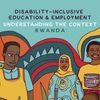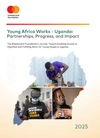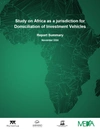Key Findings
- Rwandan policies and legislation highlight a disability rights-based agenda and a supportive policy framework on disability inclusion in education and employment.
- Other challenges to disability inclusion in education and employment include the lack of access to assistive technology, and stigma and discrimination.
- Promising initiatives to promote disability inclusion include parent support groups and skills-training for youth on employability skills.
- However, people with disabilities experience greater exclusion from education and employment than people without disabilities.
- Gaps in resourcing and enforcing policy and lack of clarity and understanding on roles and accountability contribute to this exclusion.
- Future research should include participatory projects that amplify young people’s voices, as well as rigorous impact evaluations to identify effective interventions.
About the Series
Recognizing that meaningful inclusion for young people with disabilities starts with listening and learning, the Mastercard Foundation developed a research program to map the policy landscape and to hear directly from young people with disabilities.
This research was carried out in partnership with the International Centre for Evidence in Disability at the London School of Hygiene & Tropical Medicine (LSHTM), the University of Abuja, the University of Ghana, Lifetime Consulting Ltd, Addis Ababa University, University of Nairobi, Global Advocacy and Research Group and MRC/UVRI & LSHTM Uganda Research Group.
Two report series have been developed, covering the Mastercard Foundation’s seven countries of focus – the first on the context, the second elevating youth voices.
Briefs summarizing the key findings of each report have been prepared by Dr. Xanthe Hunt in collaboration with LSHTM and the Mastercard Foundation’s research team.




